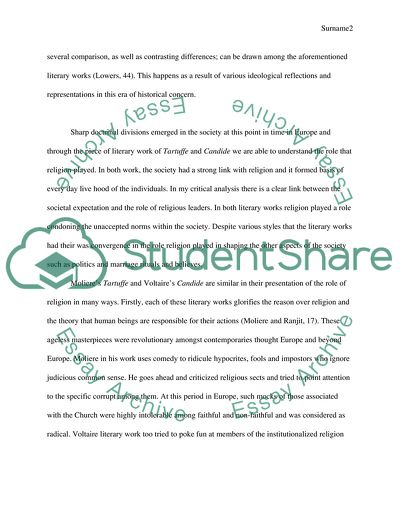Cite this document
(“The role of religion in Tartuffe and Candide Essay”, n.d.)
Retrieved from https://studentshare.org/literature/1664288-the-role-of-religion-in-tartuffe-and-candide
Retrieved from https://studentshare.org/literature/1664288-the-role-of-religion-in-tartuffe-and-candide
(The Role of Religion in Tartuffe and Candide Essay)
https://studentshare.org/literature/1664288-the-role-of-religion-in-tartuffe-and-candide.
https://studentshare.org/literature/1664288-the-role-of-religion-in-tartuffe-and-candide.
“The Role of Religion in Tartuffe and Candide Essay”, n.d. https://studentshare.org/literature/1664288-the-role-of-religion-in-tartuffe-and-candide.


